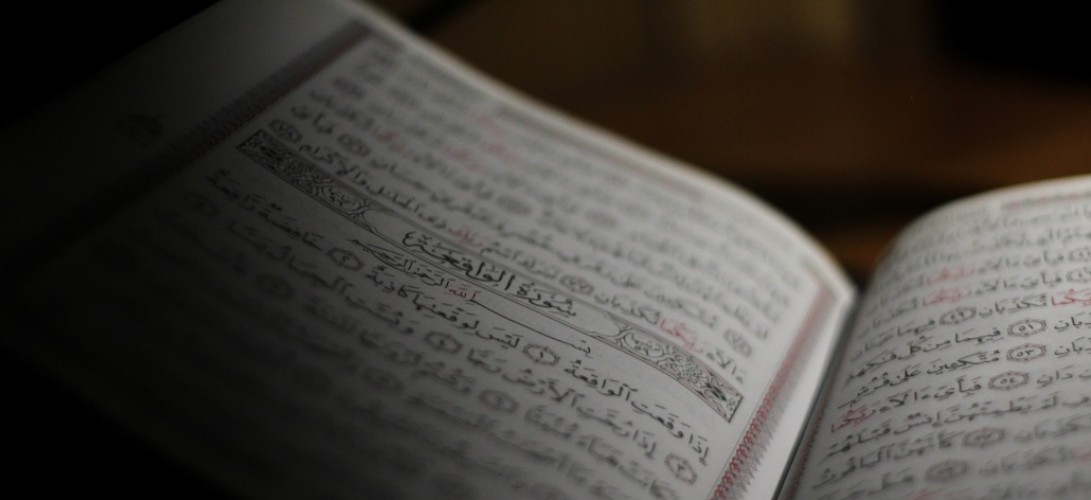Imams Defend Prophet (s)
A meeting was held at the Islamic Institute of Knowledge (IIK) in Dearborn, MI this past April on the subject of defending Prophet (s) from spurious allegations by liars who hate Islam.
Many prominent local imams were present, including the gathering’s host—IIK Imam Abdul Latif Berry, Shaykh Baqir Berry (also of the IIK), Imam Mamadou Ceesay (the amir of the Gambian Community of the Muslim Center, Detroit), Shaykh Ali Suleiman Ali (imam of the Mosque of the Community of the Western Suburbs (MCWS/Canton)), Shaykh Mohamed Moosa (imam of the Bloomfield Muslim Unity Center), Imam Alsseiny Gueye Abdali (of Masjid As-Salaam in Detroit), Hamid Dana (imam of the Albanian Islamic Center of Harper Woods), and Dr. Sharif Gindy of IAGD, in Troy, and CAIR/MI’s Executive Director Dawud Walid (also of Masjid Wali Muhammad, Detroit)
A guest from out of town was present, Shaykh Hussein Amadu Ibrahim from Masjid Nasr, New York.
The imams agreed on several answers to recent slanderous questions regarding Prophet (s). Keep in mind, they said, that answers to the media must be concise and straight forward.
1) They say that Prophet (s) ordered the slaughter of 800 Jews.
The Jews who were executed committed treason by breaking their covenant with the nation-state of Medina, siding during hostilities with Medina’s enemies. Sa`d bin Mu`aadh (RA), who was raised as a Jew, was chosen by the Jews to judge in their matter with the Muslims, and Sa’d (RA) sentenced them according to rules from the Torah. Only the men of treason were punished, not women and children.
2) They say Prophet (s) married Sayyida A’isha when she was very young.
A’isha, the daughter of Abu Bakr as-Siddiq (ra), became a Muslim when her father accepted Islam in its early days. Also, it is reported that she died around the approximate age of 80, which means that she was between the ages of 16 to 19 at the time of moving in with the Prophet (s) during their marriage. This is the age of consent with parental permission currently in America.
3) They say Prophet (s) did not abolish slavery and allowed Muslims to have slaves.
Although slavery was a universal system at this time, the Qur`an and the Prophet (s) urged freeing slaves and placed barriers to block slave trading. The Prophet (s) freed slaves and encouraged marriage between ex-slaves and Arabs from notable tribes including his own family members. The Prophet (s) went as far as to say, “None of you should call someone my slave—all of you are servants of God.â€
4) They say Prophet (s) was a man of carnal desires because of his many wives.
The Prophet (s) was monogamous while married from the age of 25 to 50, during the ages, which men have the strongest sexual desires. Polygamy was a universal practice at this time, which his latter wives fully consented to. His marriages protected the community from tribal warfare due to the new ties that were fostered due to his wives, which were of various tribes.
5) They say Prophet (s) ordered the assassination of Ka`b bin Al-Ashraf for his slanderous poetry.
Ka`b’s poetry called for the murder of the Prophet (s), who was the leader of nation, as well as other Muslims, which would be the similar today of a citizen of America calling for the assassination of the President or the commission of a terrorist action. The caller or encourager of such actions is equally guilty as the perpetrator. Muhammad bin Muslimah asked for permission to stifle Ka`b; Prophet Muhammad (s) did not order his execution.
6) They say Prophet (s) ordered death for any Muslim that decided to change their religion.
The Qur`an says nothing about killing someone for changing their religion, nor did the Prophet (s) order the execution of anyone based only on their changing of religion. Changing of religion will be judged by God; however, those who change their religion during a time of war and aid the enemy commit an act of treason. All civilized nations recognize that an act of treason that puts national security at risk can bring the possible punishment of execution.
7) They compare Prophet Muhammad (s) with the Messiah `Isa (as), stating that `Isa (as) was of a higher spiritual level and more representative of a true prophet because he did none of the above.
Jesus is known among Muslims to be one of the five major prophets of God. All prophets of God came with a particular mission in regards to their environment and time period. Jesus did not come with the law, nor did he govern a society like Prophet Muhammad (s).
Prophet Muhammad (s) epitomized high spirituality, for instance, when he returned to Makkah and granted amnesty to those who killed Muslims and robbed them of their property because his ultimate goal was to cultivate forgiveness and peace in the society.
These answers are simplified, of course, not citing specific ayats and ahadeeth. To educate our community relating to these issues, we plan on conducting 2 or possibly 3 events with our imams and scholars giving specific, in depth explanations of these topics.
Also keep in mind the concern that some media members have attacked Islam on the basis of the dhimmi system, which concerns are not responded to here. Some media representatives claimed this was designed to maintain all non-Muslims in an inferior status within Muslim society.
8-25













2006
894 views
views
0
comments